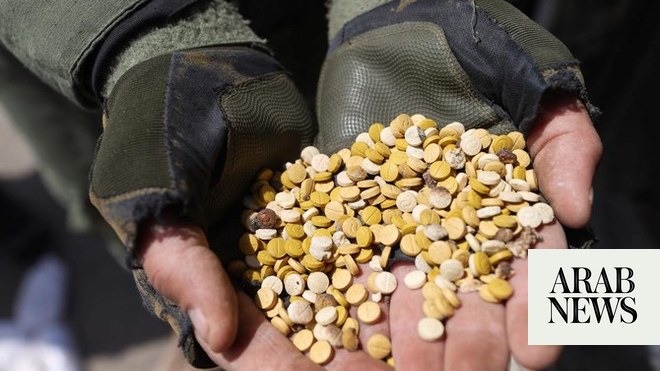
The Syrian first lady, Asma al-Assad, has been named in the first round of new US sanctions that are certain to intensify pressure on the embattled regime and its backers as the country’s crippled economy continues to wither.
The law, known as the Caesar Act, came into effect on Wednesday, placing anyone who does business with 39 named individuals and regime entities in the cross hairs of the US Treasury. The sanctions are the toughest yet imposed on Bashar al-Assad and are set to be the centrepiece of a pressure campaign that also targets his government’s two major backers, Iran and Hezbollah.
Named after a defector who smuggled 55,000 images of state security prisoners out of Syria, the Caesar Act was originally intended to bring the regime’s torturers to account. However, its purpose has in part been eclipsed by a political push that sees the law as a tool of Washington’s “maximum pressure” campaign on Iran.
“We anticipate many more sanctions and we will not stop until Assad and his regime stop their needless, brutal war against the Syrian people,” the US secretary of state, Mike Pompeo, said in a statement. “I will make special note of the designation for the first time of Asma al-Assad, the wife of Bashar al-Assad, who with the support of her husband and members of her Akhras family has become one of Syria’s most notorious war profiteers.”
He called the sanctions “the beginning of what will be a sustained campaign of economic and political pressure to deny the Assad regime revenue and support it uses to wage war and commit mass atrocities against the Syrian people”.
Ahead of the sanctions implementation, the Syrian currency plunged by up to 44%, adding to a precipitous fall over recent months, which has created widespread food and medicine insecurity across much of an already impoverished country.
In opposition-held northwestern Syria, some communities have adopted the Turkish lira as a currency after hyperinflation made the purchase of essential foods almost impossible. Elsewhere in the country, protests against the Assad regime have gained momentum as even the middle classes face rising economic stress.
Of the entities and individuals named, most were in Syria, although some were in the United Arab Emirates and Lebanon. Both countries had feared the act ahead of it coming into effect. In a seminar with the Washington Institute on Wednesday, senior state department official Joel Rayburn hinted at more sanctions to come, suggesting the next few months will be a “summer of Caesar”.
Under the law, any assets in the United States will be frozen. President Assad has been under US sanctions since he began to crush an uprising in 2011.
British-born Asma al-Assad is a former investment banker who has taken an increasingly prominent role in the affairs of state. Her network of charities, some of which receive foreign aid, have been branded fronts for regime financing operations.
Others designated under the Caesar Act include Mohammed Hamsho, one of Syria’s most prominent businesspeople, and the Fatemiyoun, an Iranian-led division of Afghan Shia Muslims that has been deployed to prop up Assad.
It penalises in the US any company that deals with Assad and blocks reconstruction assistance from Washington. Pompeo said Caesar’s goal was to force Assad into accepting UN security council resolution 2254 from 2015, which called for a ceasefire, elections and political transition in Syria. However, ahead of the law the Hezbollah leader, Hassan Nasrallah, described its implementation as a plot against the militant group and a tool to cause further economic implosion in Lebanon.
Syria remains a vital bridgehead for Hezbollah, which has consolidated its influence in the war-ravaged country over the past nine years, saving Assad from battlefield defeat. If the Syrian leader was to fall, its supply lines would be far less secure, sabotaging its connection with Iran and causing an existential threat to the organisation, which holds a whip hand in Lebanese affairs.
Pompeo said the US was undertaking the pressure campaign “in full cooperation with other like-minded countries”.
The EU has imposed its own sanctions over Syria, and a French court separately on Wednesday convicted an uncle of Bashar al-Assad for money-laundering and misappropriation of government funds.












